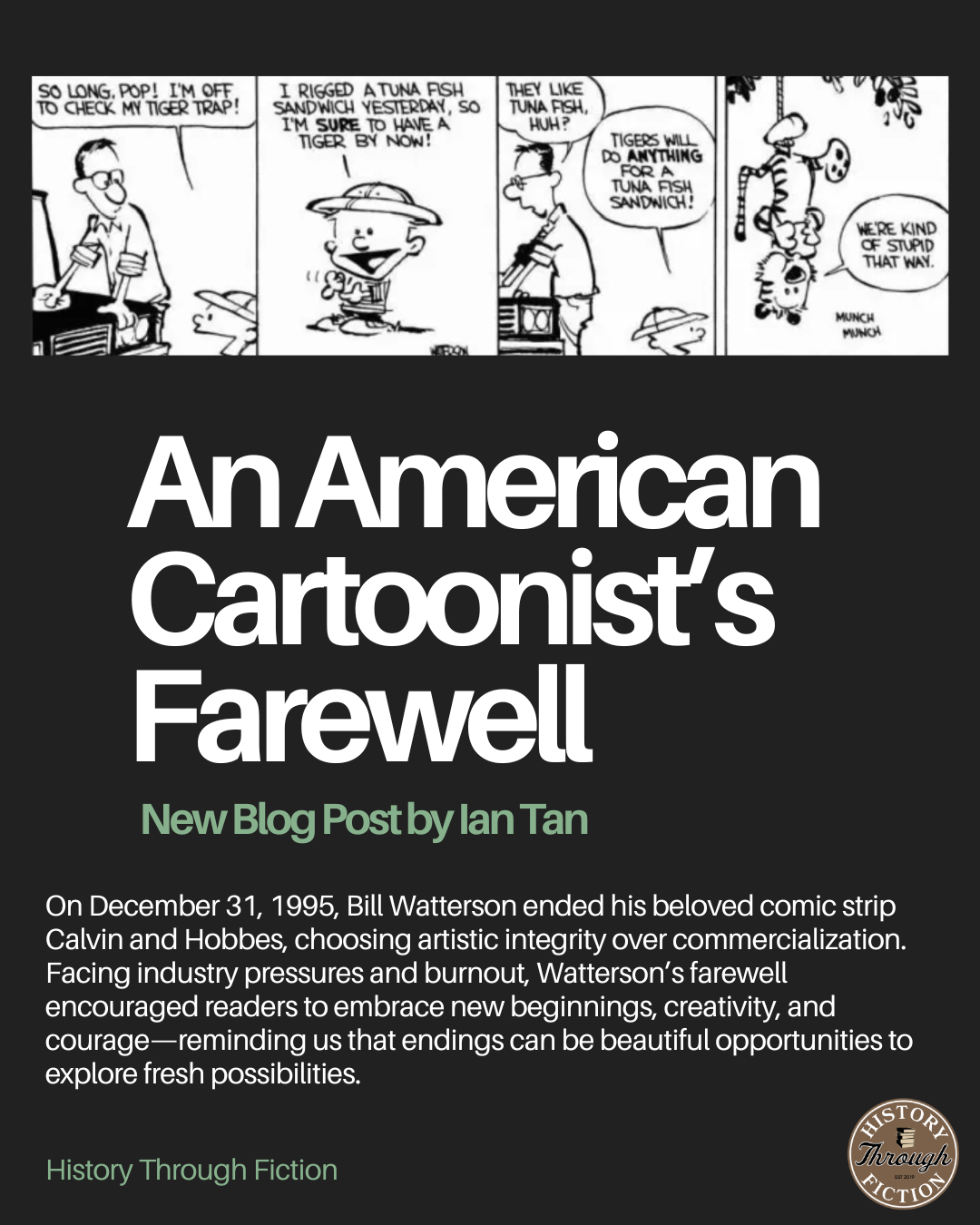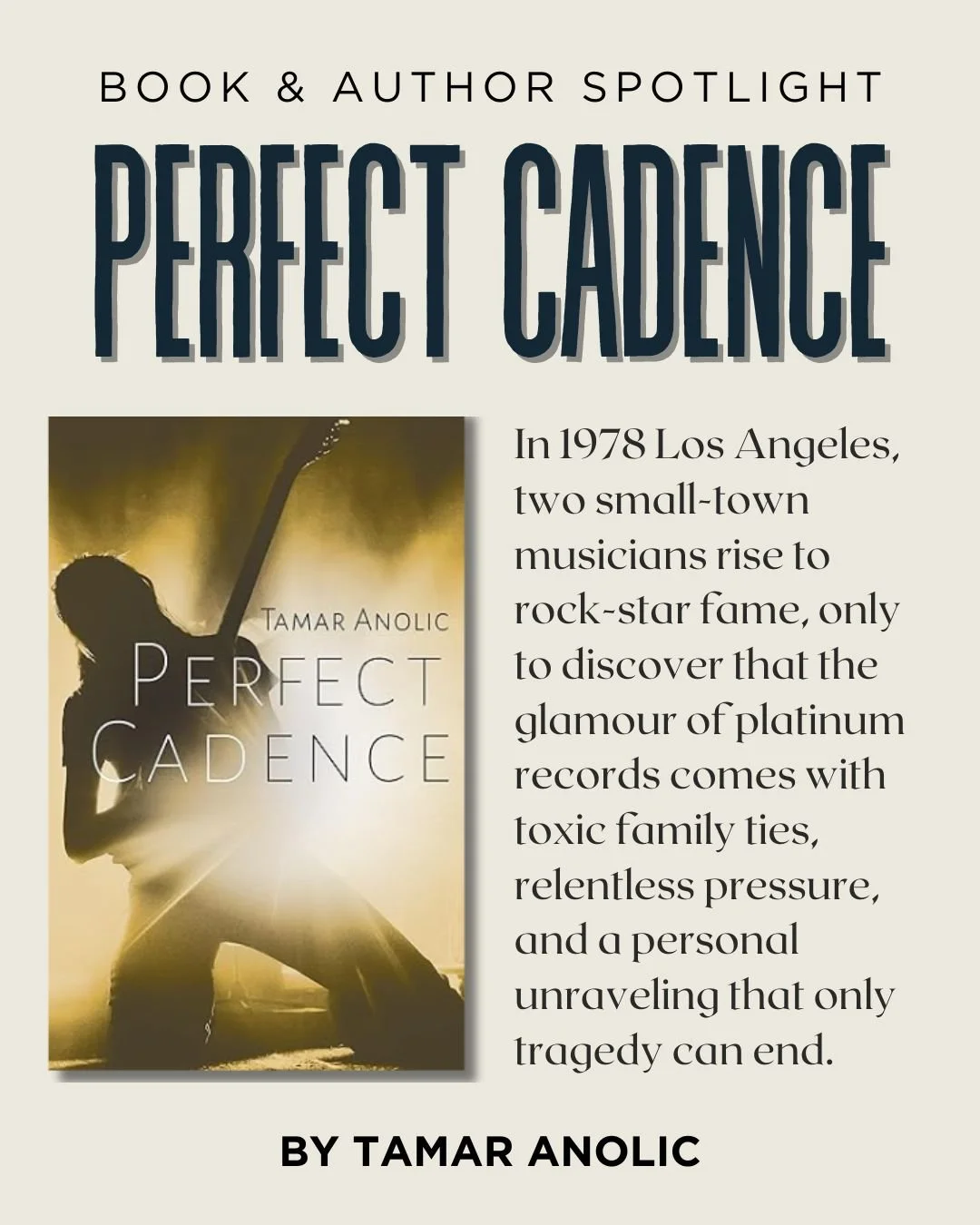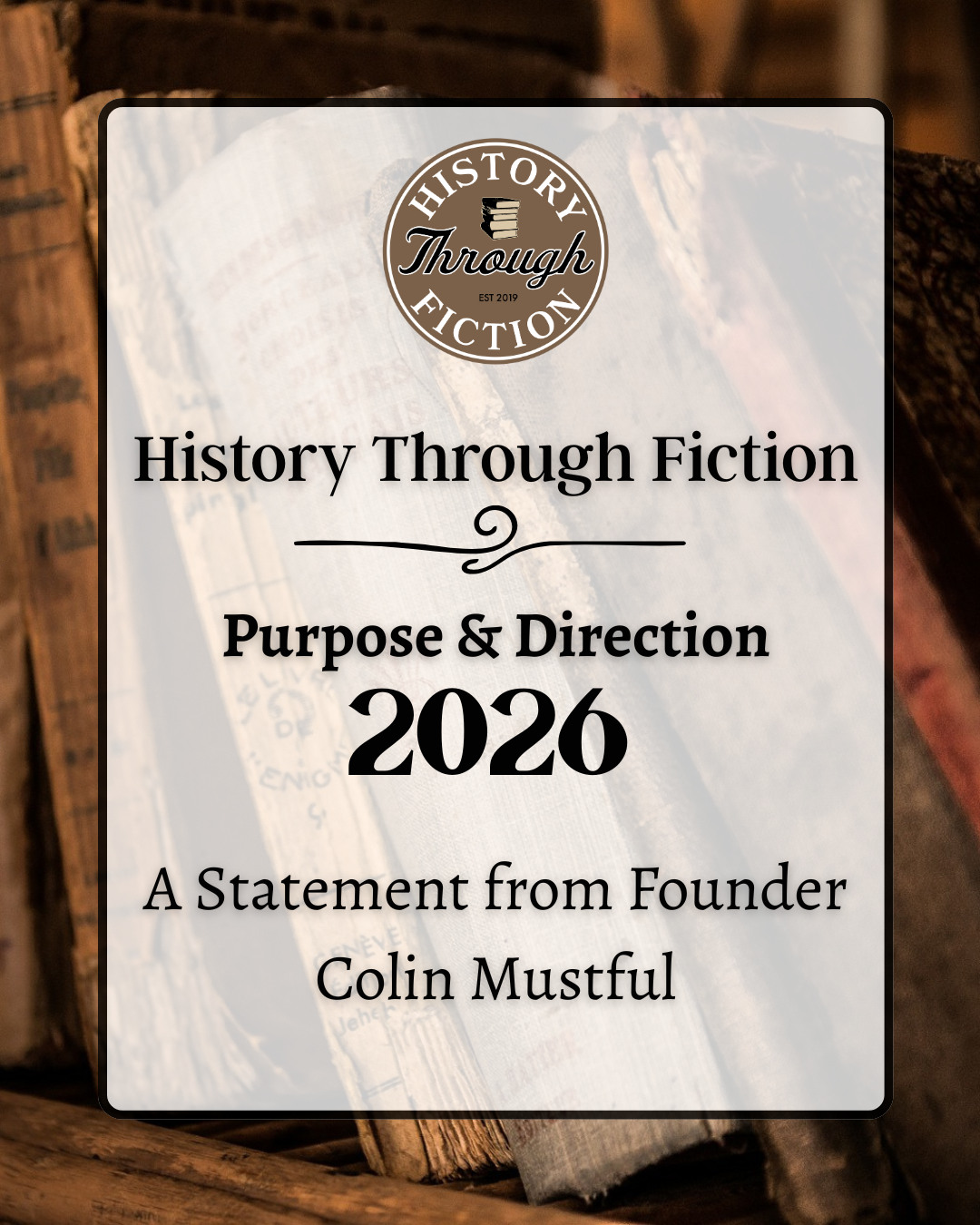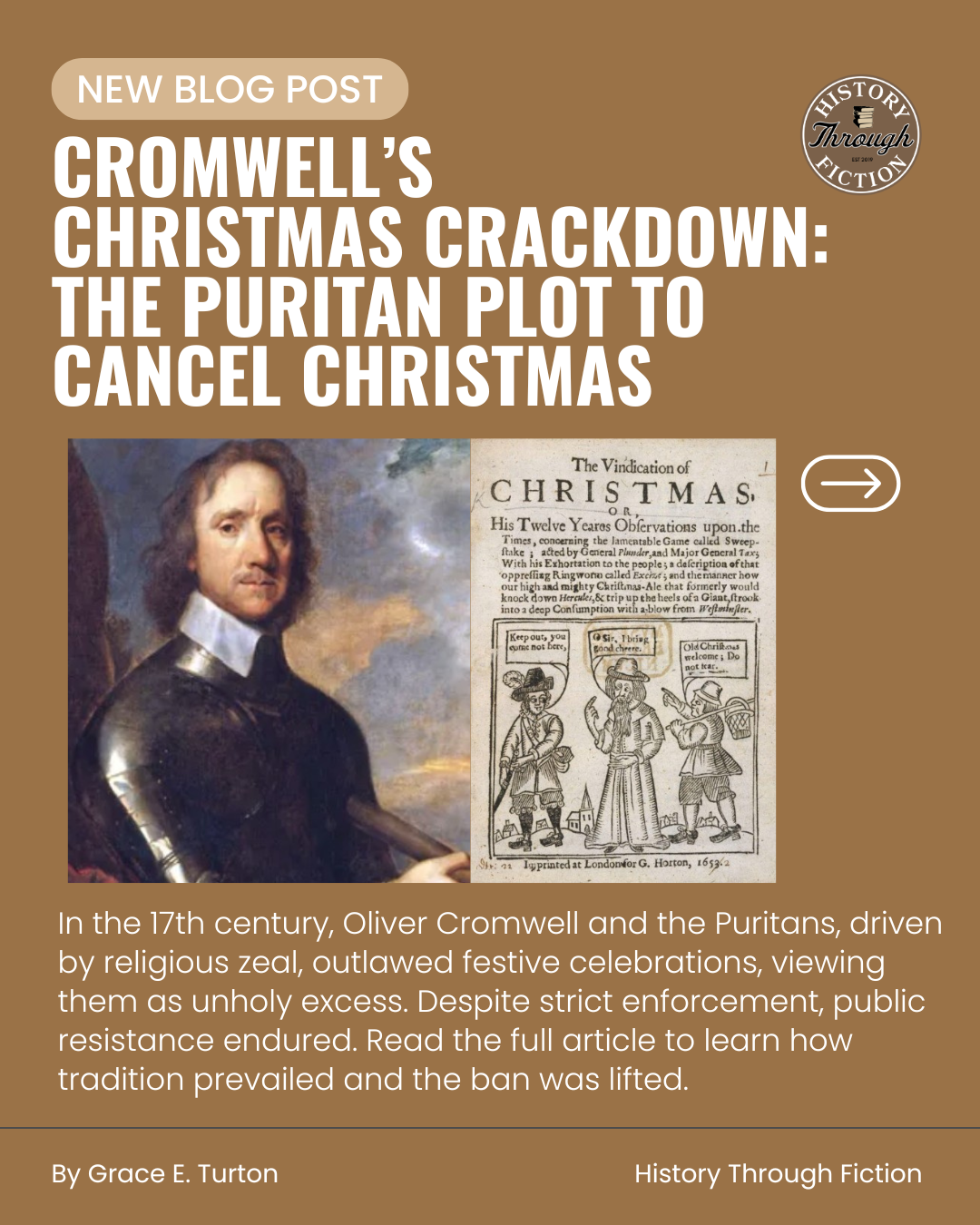
Blog

“Let’s Go Exploring!”: An American Cartoonist’s Farewell and a Send-off into New Beginnings, Dec 31, 1995
On December 31, 1995, Bill Watterson ended his beloved comic strip Calvin and Hobbes, choosing artistic integrity over commercialization. Facing industry pressures and burnout, Watterson’s farewell encouraged readers to embrace new beginnings, creativity, and courage—reminding us that endings can be beautiful opportunities to explore fresh possibilities.

Meet the Intern: Ian Tan
From fairy tales and encyclopedias to medieval Italy and the Natchez Trace, Ian Tan’s path to historical fiction has been shaped by curiosity, empathy, and a deep love of story. In this Meet the Intern post, Ian reflects on the books that first transported him, the authors who shaped his editorial philosophy, and why honoring both the beauty and the pain of history matters. Join us in welcoming Ian to History Through Fiction this spring.

Learning to Stay with the Work: A Writer’s Journey Through Revision
Lisa E. Oakley reflects on her journey from genealogist to historical fiction writer, highlighting the challenges of revising her debut novel. Guided by supportive mentors and editors, she learns to embrace feedback, overcome self-doubt, and grow as a writer. Her story emphasizes perseverance, community, and the transformative power of revision in the creative process.

Best New Historical Fiction - February 2026
February 2026 delivers an extraordinary slate of historical fiction—novels that span centuries, continents, and conflicts while asking urgent questions about power, survival, and voice. From the frozen edges of the eighteenth-century Arctic to the storm-battered hills of 1930s Jamaica, from covert psychological warfare in World War II to the redemptive force of music in Victorian England, these books showcase the genre at its most ambitious and emotionally resonant. Whether driven by greed, resistance, love, or collective courage, each of these stories reminds us why historical fiction matters: it doesn’t just revisit the past—it interrogates it.

Travelers in a Psychedelic Universe
A late-night pizza delivery. A cemetery by the river. A sound that shouldn’t exist—and a moment when reality begins to slip.
In this reflective and haunting essay, Karla Cruise explores the terror and allure of mystical journeys—whether sparked by psychedelics, fasting, or deep immersion in the natural world. Drawing on personal anecdote, cultural history, and the themes behind her newly released novel The Water Lilies of Mishipeshu, Cruise asks why encounters with the unknown so often require a passage through darkness—and what we are willing to risk for the possibility of transformation.

Cover Reveal: The Blood of Englishmen
Unveiling the striking cover of The Blood of Englishmen, designed by Steph Ross! Discover a powerful collection of prize-winning tales that span continents and centuries, exploring resilience, belief, and transformation with History Through Fiction’s second short story anthology. Don’t miss our virtual launch celebration on March 3, 2026, for live readings and exclusive discounts!

Book & Author Spotlight: Victor’s Blessing by Barbara Sontheimer
In this Book & Author Spotlight, we explore Victor’s Blessing by Barbara Sontheimer—an award-recognized saga featuring an unforgettable hero—and talk with the author about research, sacrifice, and why some endings can’t be changed.

HTF Publishing Signs Author Tim Schooley; Will Publish The Circus of the Vanishing Elephant on September 15, 2026
We’re thrilled to announce that HTF Publishing has signed Tim Schooley, author of The Wool Translator, for his highly anticipated second novel, The Circus of the Vanishing Elephant, releasing September 15, 2026. Drawing on his own early years as a circus clown and set against the vibrant yet turbulent backdrop of 1974 America, Schooley’s new novel promises a captivating journey of family, loyalty, and adventure—featuring an elephant at the heart of the story. Learn more about Tim, the novel, and the shared launch with Jane D. Cairns’ Exalted Objects in our latest blog post.

Book & Author Spotlight: Perfect Cadence by Tamar Anolic
Step into the booming Los Angeles rock scene of 1978 with Tamar Anolic’s newest novel, Perfect Cadence—a gripping story of two small-town musicians who chase fame, fortune, and a dream that threatens to consume them. Featuring a behind-the-scenes interview with the author, this spotlight explores the inspirations, research, and emotional stakes behind a novel that blends glamour with grit.

Best New Historical Fiction - January 2026
Step into the past with our curated picks for the most captivating historical fiction of January 2026. From time-spanning botanical mysteries and swashbuckling pirate adventures to post-war Hollywood intrigue and intimate portraits of iconic figures, Best New Historical Fiction – January 2026 has something for every history lover. Discover your next unputdownable read today.

History Through Fiction: Purpose & Direction for 2026
As 2025 comes to a close, History Through Fiction enters a new chapter. In this post, Founder and Editor Colin Mustful reflects on the growth of the press, shares key milestones from the past year, and outlines a clear, sustainable vision for 2026. From expanded publishing programs and reader initiatives to new workshops, events, and the inaugural History Through Fiction Conference, this statement offers a transparent look at where HTF is headed—and why historically grounded storytelling remains at the heart of everything we do.

Cromwell’s Christmas Crackdown: The Puritan Plot to Cancel Christmas
In the 17th century, Oliver Cromwell and the Puritans, driven by religious zeal, outlawed festive celebrations, viewing them as unholy excess. Despite strict enforcement, public resistance endured. The ban was lifted with the Restoration, but Cromwell’s attempt remains a powerful reminder of how tradition and joy can survive even the sternest opposition.

Expanding Access: The Rhino Keeper Audiobook Goes Wide + A Special Ebook Promotion
Exciting news for historical fiction fans: The Rhino Keeper audiobook by Jillian Forsberg is now available beyond Amazon on Hoopla, Libro.fm, Chirp, and soon Libby/OverDrive! Plus, grab her latest novel, The Porcelain Menagerie, as an ebook for just $2.99 through the end of the year.

Announcing the First Friday Readathon!
Join our First Friday Readathon! Spend two cozy hours reading and chatting with fellow book lovers—no assigned book or genre. Kickoff is Feb 6, 7–9 PM Central.

In-Person Registration is Full – Secure Your Virtual Spot at the HTF Conference!
We are thrilled by the incredible response to our first-ever conference, taking place March 28–29 in Beverly, MA. While in-person registration has reached capacity, virtual attendees can still access all panels, workshops, and keynotes from the comfort of home. Plus, you’ll have the chance to participate in agent pitch sessions and receive manuscript or query critiques from experienced editors. Don’t miss your chance to be part of the Writing Revolution—register for virtual attendance today!

Book & Author Spotlight: The Mutiny Brides by Barbara Sontheimer
Forgotten by history, the women of La Mutine survived chains, hurricanes, and isolation to become the Gulf Coast’s pioneering businesswomen, landowners, and matriarchs. Their story finally takes center stage.

History Through Fiction to Republish Jessica McCann’s Award-Winning Novel
History Through Fiction is excited to announce the upcoming 15th-anniversary edition of Jessica McCann’s award-winning novel, All Different Kinds of Free. This powerful story of Margaret Morgan, a free woman of color kidnapped and sold into slavery, sheds light on a pivotal moment in U.S. history. With significant updates, the revised edition will be released on November 10, 2026. Don’t miss this compelling blend of historical integrity and storytelling!

Best New Historical Fiction - December 2025
Discover the best new historical fiction of December 2025! From the mystical streets of 13th-century Bruges in Canticle to the battlefields of Napoleonic France in Sharpe’s Storm, the romantic intrigue of Camelot in The Once and Future Queen, the tender mysteries of 19th-century Vermont in Asa James, and the generational horrors of Dark Sisters, these five novels transport readers to vividly imagined worlds where courage, love, and danger collide.

Worstedopolis: The Ascendancy of Bradford in the Global Wool Trade during the Industrial Revolution
During the Industrial Revolution, Bradford transformed from a modest market town into “Worstedopolis,” the world’s leading center for worsted wool production. This rise was fueled by local resources, technological innovation, and strategic transport links, attracting a booming population and creating grand Victorian architecture. Industrialists like Titus Salt and Samuel Cunliffe-Lister drove both economic and social change. Though the textile industry later declined, Bradford’s industrial legacy endures, shaping its identity and earning it recognition as the UK City of Culture 2025.

Don’t Fear the Research: Writing Fiction as an Outsider
N.T. McQueen shares how thorough research and direct outreach to cultural insiders helped him authentically write about the Armenian Genocide. He emphasizes that diligent study and genuine engagement with the community can overcome fears of misrepresentation, leading to more authentic, accepted, and rewarding historical fiction.
